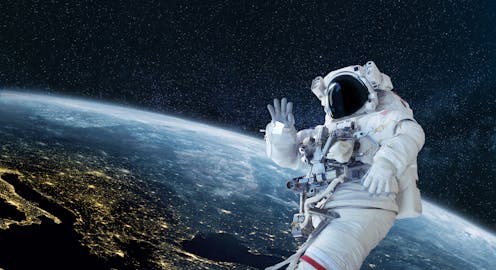Space junk comes to life in Ceridwen Dovey’s aching and profound tales of fallen astronauts
- Written by Tony Hughes-d'Aeth, Professor, Chair of Australian Literature, The University of Western Australia

Ceridwen Dovey’s Only the Astronauts[1] is a book of stories about the fantasies that have caused humans since the 1950s to launch items – including themselves – into outer space. The stories are whimsical and, to differing degrees, factual.
This is what gives them their piquancy. The absurdity of the scenario is punctured by the realisation that this – or something very much like this – actually happened. The effect is a little like the work of W.G. Sebald[2], although in a broadly comic register.
Review: Only the Astronauts – Ceridwen Dovey (Hamish Hamilton)
The first story is about a cherry red sportscar that has been launched into space with a mannequin named Starman strapped into the driver’s seat. The premise is patently ridiculous, except that in 2018 Elon Musk did exactly this[3]. The car is, as we speak, slowly orbiting the sun a little further out than earth. It takes 557 earth days for Musk’s Tesla Roadster to complete its solar orbit.

















